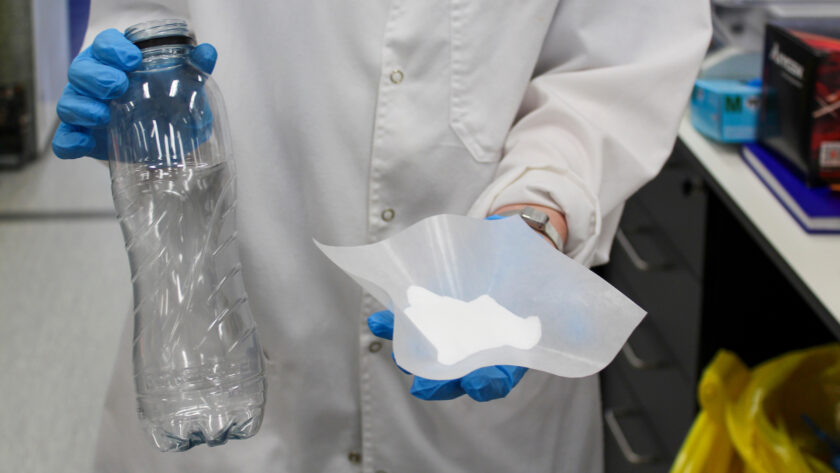Australian enviro-tech startup Samsara has developed a new way to infinitely recycle plastic, removing the need to create new plastics from fossil fuels.
“If we’re determined to solve the plastic crisis we need to start with where the problem lies, which is how it’s made and recycled,” said Paul Riley, CEO and co-founder of Samsara.
According to the company, only 9 per cent out of 2.5 million tonnes of plastic waste generated in Australia is recycled annually, while 84 per cent ends up in landfills.
“The main reason is that current recycling methods are inefficient, time-intensive and costly,” the company said. “Adding to the issue is that current methods do not allow all plastic to be recycled (like coloured bottles) or recycled repeatedly without degradation.”
Samsara says the technology will break plastic down to its core building blocks with plastic-eating enzymes. Those blocks will then be used to recreate brand new plastics, making the process a recycle loop.
“This means we will never have to create plastic from virgin materials like fossil fuels again, and we can divert plastic from our oceans and landfill,” Riley said. “This gives consumer brands the tools to continue using plastic with zero tradeoffs.”
The initiative is backed by supermarket operator Woolworths Group, The Australian National University (ANU) and deep tech venture fund Main Sequence. Woolworths says it will use Samsara’s plastic to package its own-brand products with the first expected to hit shelves within the next two years.
While Samsara’s initial focus is PET plastic and polyester, which is commonly used to create plastic bottles and fast fashion, the company aims, in long term, to tackle what would be a world first, the mixed bale of plastic, by advancing the process so that every kind of plastic can, one day, be infinitely recycled.
“Samsara has the potential to address a massive world challenge, and if we don’t address it soon it will be too late,” said professor Brian Schmidt, Nobel-prize winner and Vice-Chancellor of ANU. “We’re proud to be a driving force behind Samsara, bringing to life technology that can have real impact in the world, by helping to solve the plastic pollution crisis.”



